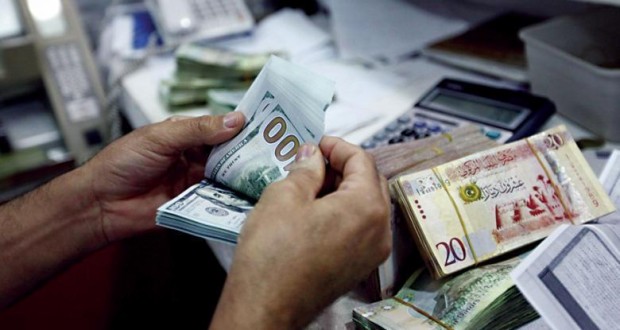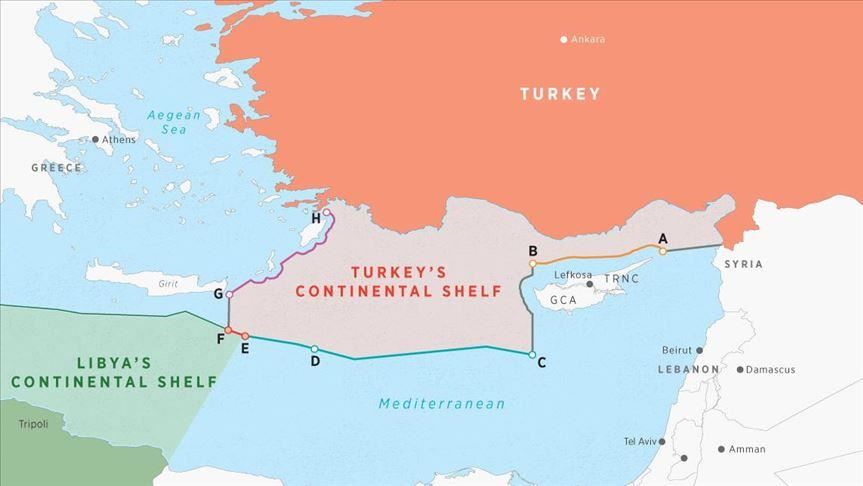In another bold move, Fayaz Sarraj, in his capacity as Supreme Commander of the Armed Forces – as stipulated in the 17 December 2015 political agreement –announced the establishment of a new presidential guard this month.
This force is to be headquartered in Tripoli and will answer directly to the Presidency Council. It has its own budget and independent administration. According to Presidency Council Decision no. 2 of 2016, which was issued on 9 May, the guard will be responsible for:
- securing the headquarters of all presidential, sovereign, and public institutions
- securing and guarding members of the
Presidency Council:
- securing and guarding senior visitors to Libya and securing their transportation and place of residence
- securing and guarding land and sea borders
- securing water sources and pipelines and electricity plants
- carrying out any other task that may be demanded of it
According to the decision, the force is to comprise only ‘units that belong to the army and the police.’
Who will take part?
Such an assertion is somewhat confusing because it is unclear which army or police force is being referring to. The army in western Libya for the most part comprises the brigades and revolutionary forces that formed part of Operation Libya Dawn but now refer to themselves as the official security architecture of the state.
These forces are capitalising on General Khalifa Haftar’s rejection of the GNA to position themselves as the state’s official guardians.
The decision also failed to mention how strong the guard would be or who would lead it, although, given the extensive nature of the tasks it has been allocated, it will clearly need to be a significant force.
Such ambiguities have left some Libyans questioning how the Presidency Council, a body that is not even secure outside of its own headquarters, can establish and command such a force. The decision appears to be Sarraj’s way of trying to bring the various armed groups operating in and around the capital more directly under the control of his government and to give his new government some teeth. Rumours are already circulating that Sarraj has sent letters to the various forces requesting that they join the guard.
Whether they will comply is another matter
Although it seems likely that brigades and forces that are already backing the new government will be willing to join –consolidating their position as official state security forces – others may well resist.
Solving or creating a problem?
Furthermore, such a guard could end up being wholly dominated by forces from Misrata and Islamists from Tripoli, thereby reinforcing the perception that the new government – and by extension the international community – is siding with the forces that made up Operation Libya Dawn.
As such, it risks creating a deeper schism between eastern and western forces. It also risks creating yet another military force outside of proper legal channels. Haftar has described the Presidential Guard as ‘another militia,’ a label the force will struggle to shake off. If the guard takes shape but does not bring in the likes of Haftar, it is likely to create more problems than it will solve.
International support
The joint communiqué issued after the Vienna foreign ministers meeting in May nevertheless stated, ‘We salute the Presidency Council’s creation of the Presidential Guard, which will be composed of professional personnel according to Article III of the Presidential Council Decree no. 2 to protect national institutions, members of the Presidential Council, and members of the government.’
It added, ‘We are ready to respond to the Libyan government’s requests for training and equipping the Presidential Guard and vetted forces from throughout Libya.’
More significantly, those at the Vienna meeting also implied that they would be prepared to support requests from the new government for exemptions to the UN arms embargo.
The communiqué read, ‘The Government of National Accord has voiced its intention to submit appropriate arms embargo exemption requests to the UN Libya Sanctions Committee to procure necessary lethal arms and materiel to counter UN-designated terrorist groups and to combat Da’esh [the IS group] throughout the country. We will fully support these efforts while continuing to reinforce the UN arms embargo.’
This is clearly a major development. But it is unknown which force the international community will be able to supply with weapons. General David M. Rodriguez, the chief of the US Africa Command (AFRICOM), commented this month that Libya’s internal politics still make it difficult to determine which armed groups are aligning themselves with the GNA.
It appears as though the international community is so swayed by the wish to defeat IS in Libya that it is willing to consider arming one side in the conflict despite the risk of taking the country even further away from peace and long-term stability.
Haftar’s response
Haftar is already responding by expanding his control over more areas in the east and centre of the country. As well as declaring the start of a campaign to battle IS, he has also moved his forces into Jufra and taken over a number of oil fields in the Sirte basin (see Table 1).
Although the fields are non-operational – some having been attacked and destroyed in March 2015 – this was still a provocative bid to assert control beyond the areas Haftar already dominates. It was also another signal that he has no intention of stepping aside for the national good.
The new government is thus in a serious dilemma. While the installation of the GNA is in many ways a positive step, if Haftar and the House cannot be brought on board, the de facto division that has been in place more or less since the summer of 2014 will deepen.
This article was taken from our Libya Focus publication. If you would like to talk to one of our consultants about this further then please contact us here.



